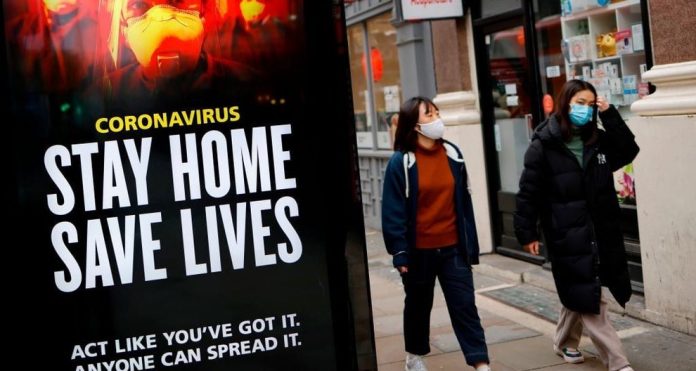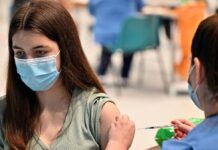People who have had both Covid jabs may still be forced to isolate if they come into contact with the virus, it has been reported.
Even after the final stage of lockdown lifting takes place on June 21, those who have had both jabs could end up in quarantine for ten days if they come into contact with an infected person.
The plans to continue the contact tracing programme, as reported by the Telegraph, have been made to stop the spread of the virus.
While much less likely to fall ill with the virus, vaccinated people can still pass it on.
The programmes continuation is set to be announced next week, when conclusions from a review into social distancing are made public.
It is expected that social distancing and face mask rules will be relaxed.
If self-isolating is required after June 21, than the big unlocking of British society will have a distinctly different feel to it.
People may be deterred from going to large events in order to avoid being stuck inside for ten days if they catch the coronavirus or come into contact with someone who has.
The rules differ from those in force in America, where only people who have symptoms have to quarantine if they’ve been jabbed.
Close contact is defined as having a face-to-face conversation, being within one metre for one minute or within two metres for 15 minutes.
The cautious approach was reported on the day that Professor Andrew Pollard, director of the Oxford Vaccine Group at the University of Oxford, suggested the pandemic could be declared over if people are kept out of hospital by vaccines.
Referring to Public Health England (PHE) data published at the weekend, he told BBC Radio 4’s Today programme that more time was needed to see how the vaccines work in the longer-term as people build immunity.
Asked if people may think the Oxford/AstraZeneca vaccine was not as good as Pfizer, according to the data, he said: “Well I think in some ways we’re looking at the wrong exam question, because this is a question about mild infection and transmission.
“But the thing that makes this a pandemic is people going into hospital. And so what we really need to know, and we don’t have the data yet for certain, is how well both vaccines are performing in preventing people from going into hospital.
“And what we’ve seen so far in the pandemic is that protection from vaccines against hospitalisation and death is much, much higher than the protection against mild infection, which is what these tests are detecting.
“So what I’m waiting for is the answer to that exam question, which is the critical one to understand how we should respond in the future to new variants, is to find out whether these infections that we’re starting to see a little bit with this current variant are completely uncoupled from hospitalisations and deaths, but we just need a few more weeks to get more evidence around that.”







